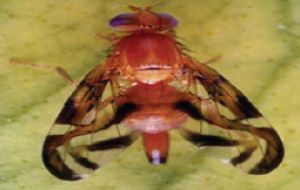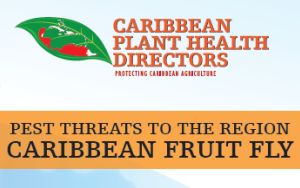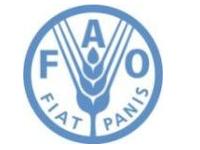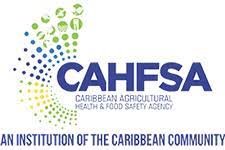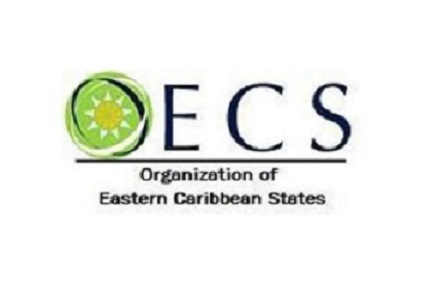Caribbean Fruit Fly
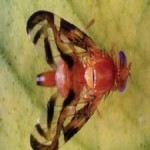 Of the fifteen (15) pest species of Anastrepha present in the neotropics, the Caribbean Fruit fly – Anastrepha suspensa (Loew) – also known as Caribfly poses the most imminent threat of invading the islands of the Caribbean region because of its limited distribution, the potential damage it can do to crops that form the core of our production and exports and its potential unregulated movement in trade.
Of the fifteen (15) pest species of Anastrepha present in the neotropics, the Caribbean Fruit fly – Anastrepha suspensa (Loew) – also known as Caribfly poses the most imminent threat of invading the islands of the Caribbean region because of its limited distribution, the potential damage it can do to crops that form the core of our production and exports and its potential unregulated movement in trade.
Symptoms and Infestation
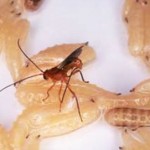 The adult female Caribbean Fruit fly lays eggs in several fruits for which the Caribbean is well known and which we export regionally and extra regionally. Fruits affected include Mango (Mangifera indica); many Annonas (Annona spp), Spondias spp., Papaya (Carica papaya), Avocado, (Persea americana), West Indian Cherry (Malpighia punicifolia (glabra), Guava (Psidium guajava), many Citrus species, Coffee, Tomato and Sapote.
The adult female Caribbean Fruit fly lays eggs in several fruits for which the Caribbean is well known and which we export regionally and extra regionally. Fruits affected include Mango (Mangifera indica); many Annonas (Annona spp), Spondias spp., Papaya (Carica papaya), Avocado, (Persea americana), West Indian Cherry (Malpighia punicifolia (glabra), Guava (Psidium guajava), many Citrus species, Coffee, Tomato and Sapote.
Fruits in which eggs are laid decompose from the actions of the larvae developing from eggs in the fruit and from secondary infection. Without timely treatment affected fruits cannot be eaten or traded. Attacked fruit can show signs of oviposition punctures, but these, or any other symptoms of damage, are often dificult to detect in the early stages of infestation. Much damage may occur inside the fruit before external symptoms are seen, often as networks of tunnels accompanied by rotting.
Distribution
The Caribbean fruit fly includes Bahamas and Cayman Islands, Southern Florida, Puerto Rico, Cuba, Jamaica and Hispaniola (Stone, 1942; Weems, 1965).
Control
Control can be considerably aided by good cultural practices, for example by gathering all fallen and infected host fruits, and destroying them.- Insecticidal protection is possible. Malathion is the usual choice of insecticide for fruit fly; GF-120 (with spinosad) is an environmental friendly alternative.
- Possibilities for biological control of Anastrepha suspensa (the parasitoid wasp) and Biosteres longicaudatus is being considered.
What Can We Do?
- Do NOT bring into your country any fruit or agricultural produce without the required Plant Quarantine Import Permits/Approval
- When you travel declare all agricultural items.
- Report any infested (pierced or larvae present) fruit to your Ministry or Department of Agriculture
- If fruit flies are present do not sell or transport infested fruit
- Follow all control recommendations from your Ministry or Department of Agriculture
| 1306 KB |
-
News about this Priority pest will be posted soon
